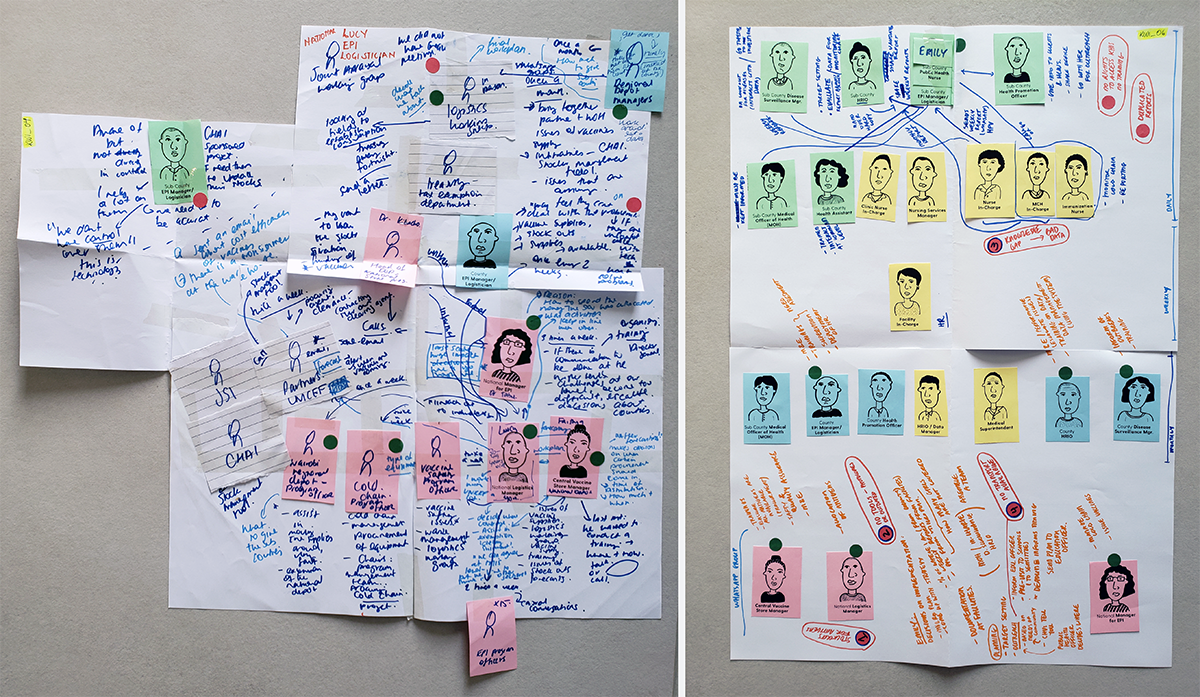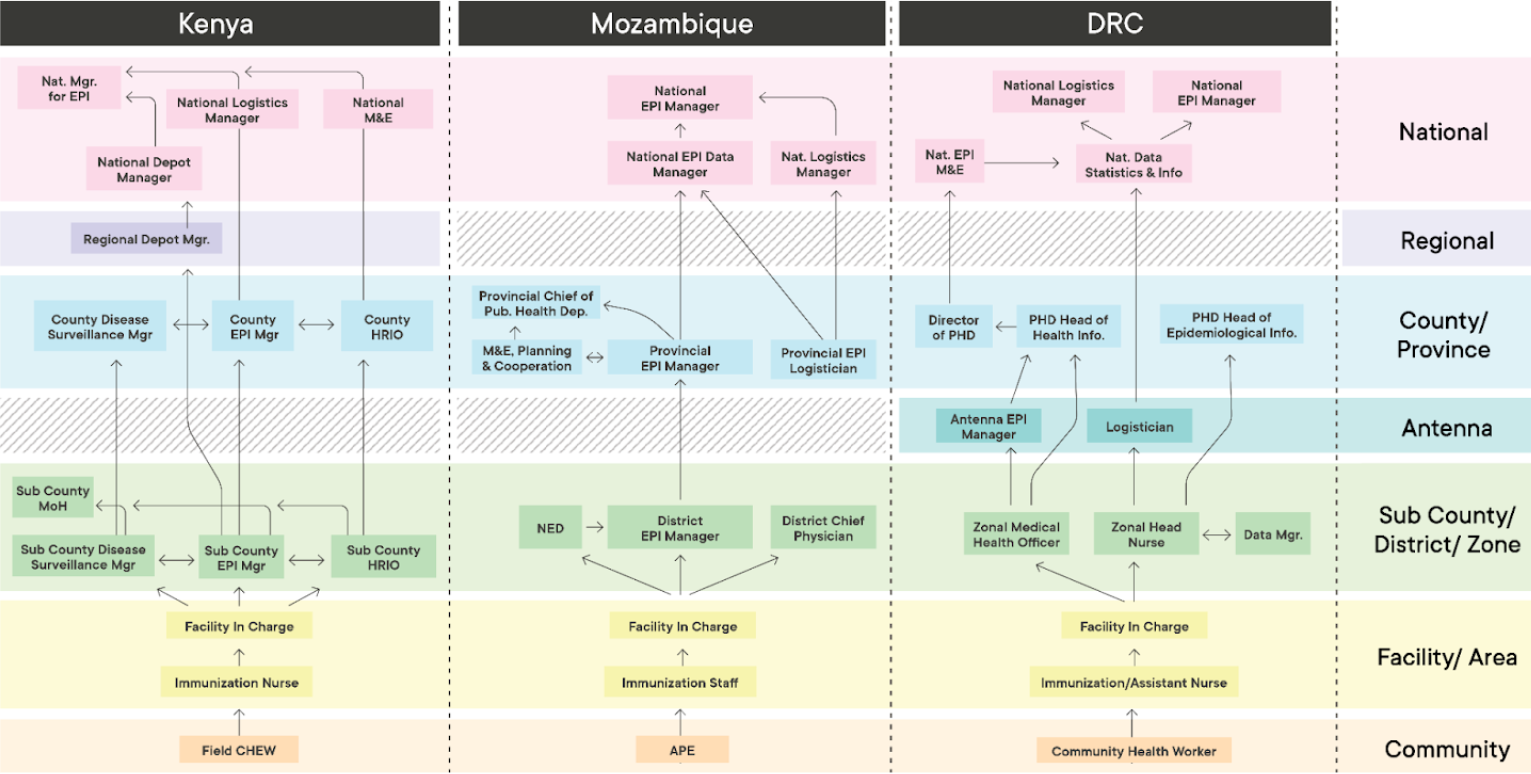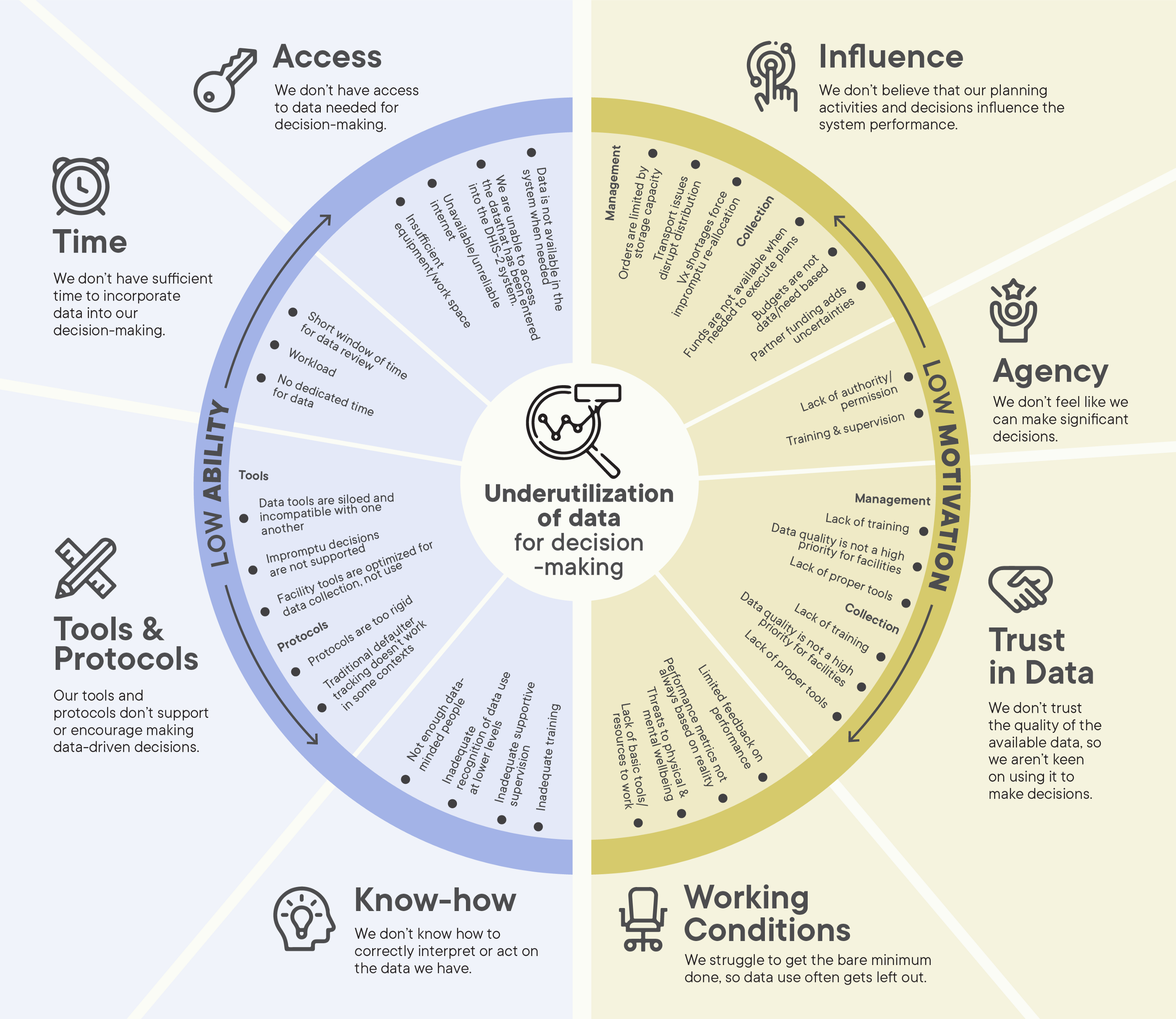
VxData Insights
Exploring why immunization workers underutilize data in their decision-making
Background
Immunisation is one of the most powerful and cost-effective ways to save lives and improve economic outlooks. Yet, despite significant headway, routine immunisation and new vaccine introductions still face strong challenges related to collecting and using quality data for planning, management, and performance improvement. Prioritising and adequately addressing these challenges is difficult without understanding the full context in which they occur.
To address this need, the VxData Insights study took a Human-Centred Design (HCD) approach to gather the perspectives and data-specific challenges of actors at all levels in the expanded immunisation programs (EPI) in three countries — Kenya, the DRC and Mozambique.
Project overview
VxData Insights was a three country research study funded by the Bill & Melinda Gates Foundation. A joint effort between Sonder Collective and John Snow Inc. (JSI), the aim was to understand challenges around using data for decision-making in delivering immunisation services. The work was conducted between December 2019-December 2021 and consisted of four phases -- Planning, Discovery, Field Research, and Synthesis.

Approach
Many challenges with data use are already well-known, but often poorly understood. Without knowing exactly why problems are happening, not just what they are, prioritising and designing successful interventions can be difficult. By engaging individuals who make up the system and taking time to understand their experiences, motivations, and daily struggles, we were able to examine these challenges anew from a user-biased perspective.

Interactive mapping activities asked participants to visualise current interactions and data flows, as well as tell specific stories to help us unpack system challenges and identify their root causes.



Outcomes
Mapping of the current system
Based on input from participants as well as local subject-matter experts, a detailed system map was created for each country. Arrows indicate bottom-up reporting lines and significant interactions. This map provides clarity on intervention entry points that are often obscured when looking at a system broadly. For each system level, actors key to the collection and utilization of EPI data were identified. Each actor profile includes a set of unique challenges, types of decisions made, data and tools used, as well as interactions with other system actors.


8 Root Causes Framework
Through roughly 200 conversations with healthcare workers and managers from Community all the way up to National levels, we gained a deeper understanding of the factors that lower participants’ ABILITY and MOTIVATION to utilize data for decision-making. These factors have been synthesized into the 8 Root Causes Framework, pictured below.

Priority Areas for intervention
The 8 Root Causes framework was shared with stakeholders in each country during a series of co-creation workshops. Based on input during these workshops, the team identified 7 Priority Areas for intervention that cut across all three geographies. The Priority Areas are made of many root and subcauses, mirroring the complexity of challenges facing the system today.

Other projects

PHISICC
Co-creating tools for health workers to support decision making, increase their dignity and improve health outcomes
🇳🇬 Nigeria
🇨🇮 Côte d'Ivoire
🇲🇿 Mozambique

